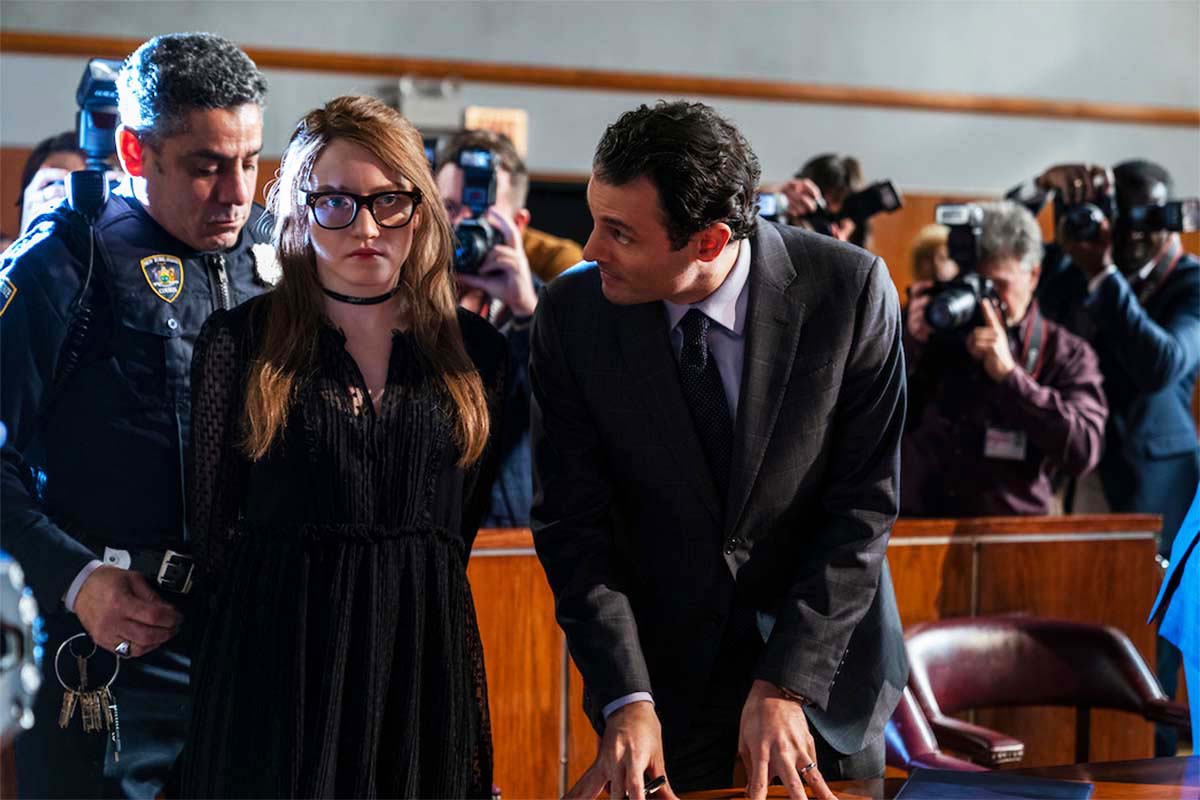As anyone who has been paying attention surely already knows, Mitski’s latest album, Laurel Hell (out today via Dead Oceans) almost didn’t happen. In 2019, the singer announced she was going on an indefinite hiatus, leaving music and public life behind after ascending to a level of fame that indie music fans who had watched her emerge from the DIY punk scene would never have anticipated for her. Since those early days, she had honed a more sophisticated, complex musical palette, and after the breakout success of albums like Bury Me at Makeout Creek and Puberty 2, the more pop-forward Be the Cowboy cemented her mainstream popularity. After years of non-stop touring, late-night TV performances and thousands and thousands of fans with a deep attachment to her — one that, in many cases, verged on a sense of entitlement to her and her personal life — she became disillusioned with it all. She was ready to walk and, as she put it in a tweet announcing her final performance in Central Park, “be a human again.” And then she remembered she had one more record to turn in.
Yes, Laurel Hell‘s origins aren’t some romantic case of inspiration striking and convincing her to return to music, but rather the result of her owing her label one more album. “I contractually had to release it,” she recently told Rolling Stone. “I just didn’t know whether I would ask the label to take it and keep me out of it, or I would actually go out and present it.” She chose the latter, but it’s clear on this record that she’s still got one foot out the door; Laurel Hell sees her wrestling with her decision to return to music (and, by default, all the trappings of fame and the commercial pressures from industry insiders), but it feels tossed-off and cold in parts.
She welcomes us in on opener “Valentine, Texas” by singing, “Let’s step carefully into the dark, once we’re in I’ll remember my way around.” It’s just one of many lines that could, in theory, be about anything — depression, a failed romantic relationship, the aimlessness that comes from months of pandemic-related isolation — but instead comes off as thinly veiled meta-commentary about her career and her relationship to her creativity. On the excellent single “Working for the Knife,” it’s even more obvious: “I cry at the start of every movie, cause I guess I wish I was making things too,” she sings, before eventually admitting that, “I used to think I’d be done by 20/Now at 29, the road ahead appears the same/Though maybe at 30 I’ll see a way to change.” On “Love Me More,” she pleas for admiration (of adoring crowds, perhaps?) and seems resigned to the fact that retiring from music would rob her of a sense of purpose. “I wish that this would go away/But when I’m done singing this song, I will have to find something else/To do to keep me here,” she admits.
But despite all those allusions, Laurel Hell is her most lyrically vague record to date — an odd development for an artist whose work has historically been so raw and personal. Sonically, it’s also her most radio-friendly effort, full of synthpop sheen and ’80s dance beats that seem almost designed to further push her into the mainstream against her wishes. Is this meant to be some sort of intentional commentary on this phase of her career? It’s hard to say, but there are patches of the album that feel like unfinished thoughts. The downtempo, more ambient tracks in particular feel almost eerily distant — they achieve a certain mood, sure, but they’re the kind of thing someone as massively talented as Mitski could write in her sleep, and emotionally she seems checked out from the proceedings.
That’s not to say that there aren’t moments of greatness. In addition to “Working for the Knife,” there’s the lush “There’s Nothing Left For You,” which sees her urging a former love to move on from her and find someone new. The record also ends on a high; after the penultimate track, the gloomy shrug “I Guess,” she goes out with a bang on “That’s Our Lamp.” It’s a stunning, deceptively upbeat track that sees our narrator standing outside the apartment she shares with a soon-to-be-ex after a fight, gazing through their window nostalgically at the lamp in their bedroom. It’s full of sad realizations (“You just don’t like me, not like you used to” and, eventually, “We may be ending”), but the swell of horns and strings makes it sound almost like the climax of a romantic comedy; things may be ending, but maybe that’s not entirely a bad thing. It’s hard not to read it as some sort of bittersweet farewell to her fans who are wondering how long this “return” will last. She renewed her contract with Dead Oceans last year, so Laurel Hell is presumably not the last we’ll hear from her. But next time we do, will it be under the warm glow of that lamp she’s remembering, or will she be once again ushering us into the darkness?
This article was featured in the InsideHook newsletter. Sign up now.





















